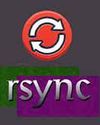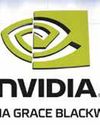
As an enterprise cloud security architect and cloud cost consultant, I have had the opportunity to explore the intersection of cloud security and cost optimisation. Initially, I approached these areas separately, but I soon realised the synergies between them. In this article, I will explore the challenges of complex cloud cost optimisation and the benefits of adopting a combined approach. This approach proves effective, especially in scenarios where no single solution exists and there are limitations in control and visibility.
Enterprises have prioritised cloud migration in the past decade. However, they have often underestimated the challenges that arise when it comes to effectively managing security and cost post-transition. The distributed and dynamic nature of the cloud presents unique and unforeseen hurdles for enterprises in their pursuit of implementing robust security controls and optimised cost management.
To better comprehend an enterprise cloud environment, enterprises commonly utilise one or more cloud service providers, manage multiple cloud accounts, and leverage multiple regions, availability zones, and hybrid on-premises extensions to provision their infrastructure. Within this intricate environment, multiple teams, applications, and users with varying skillsets and business objectives interact with the cloud, utilising different methods. Additionally, the dynamic nature of cloud environments enables changes to be made by anyone, from anywhere, through various means of interaction with the cloud.
Esta historia es de la edición October 2023 de Open Source For You.
Comience su prueba gratuita de Magzter GOLD de 7 días para acceder a miles de historias premium seleccionadas y a más de 9,000 revistas y periódicos.
Ya eres suscriptor ? Conectar
Esta historia es de la edición October 2023 de Open Source For You.
Comience su prueba gratuita de Magzter GOLD de 7 días para acceder a miles de historias premium seleccionadas y a más de 9,000 revistas y periódicos.
Ya eres suscriptor? Conectar

Red Hat unveils Red Hat OpenShift Virtualization Engine
Red Hat OpenShift Virtualization Engine is a new edition of Red Hat OpenShift that offers a dedicated solution for organisations to leverage the virtualisation capabilities already available within Red Hat OpenShift.

Spring AI: A Door to GenAI Heaven for Java Developers
Let's explore the Spring AI framework and its advantages, and look at how it is helping Java developers adopt AI.

Significant security vulnerabilities drive the release of Rsync 3.4
Rsync, the widely used utility for incremental file transfers and synchronisation, has released version 3.4. This update isn't packed with exciting new features but is instead critical due to several newly disclosed security vulnerabilities.

NVIDIA puts Grace Blackwell at every AI developer's fingertips
NVIDIA has introduced NVIDIA Project DIGITS, a groundbreaking personal AI supercomputer designed to empower AI researchers, data scientists, and students NVIDIA® NVIDIA GRACE BLACKWELL with the immense capabilities of the NVIDIA Grace Blackwell platform.

Top Tools for DevOps, Cybersecurity, and Cloud Management in 2025
In 2025, organisations will continue to rely on open source tools to retain a competitive edge. We look at why the best tools for DevOps, cybersecurity and cloud management will remain relevant and how best to integrate them into your organisation.

CREW: Open source platform to improve human-AI interaction
As human-AI collaboration deepens, critical questions arise: How should humans and AI complement one another? What kind of feedback enhances AI training? How can trust in AI be optimised to balance collaboration without over-reliance? Researchers at Duke University are addressing these challenges through CREW-an innovative platform designed to advance human-AI teaming.

Red Hat completes the acquisition of Neural Magic
Red Hat, Inc., has announced the completion of its acquisition of Neural Magic, a trailblazer in software and algorithms that accelerate generative AI (GenAI) inference workloads.

The Do's and Don'ts for Software Architects
Here's a list of best practices for software architects as well as the common mistakes they should try not to fall prey to.

openSUSE's Tumbleweed introduces Wayland support for the LXQt desktop environment
The openSUSE Project has announced that its Tumbleweed rolling release distribution now includes Wayland support for users of the LXQt desktop environment.

A Guide for Software Architects: Common Mistakes and Best Practices
Software architects play an invaluable role in the digital transformation of an organisation. To make a mark, they must imbibe certain qualities and avoid common errors.